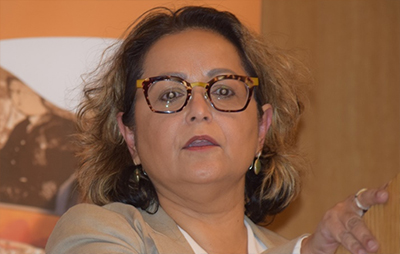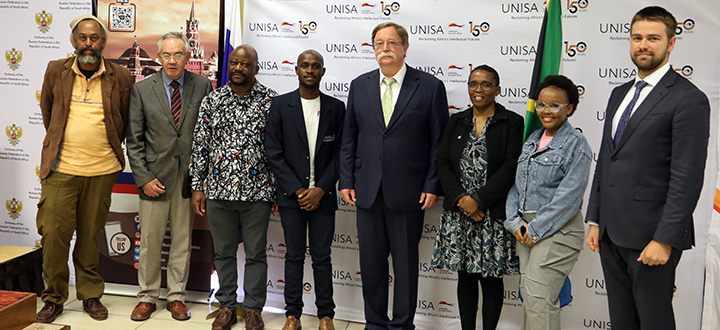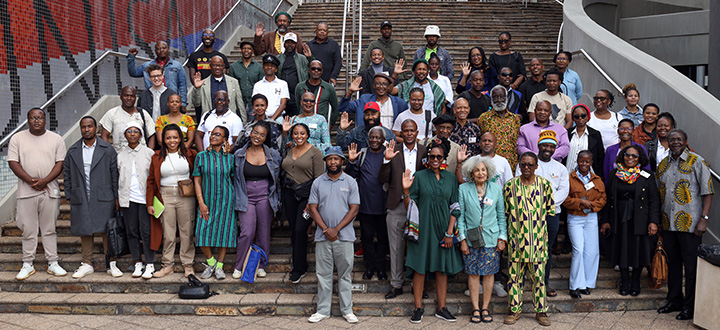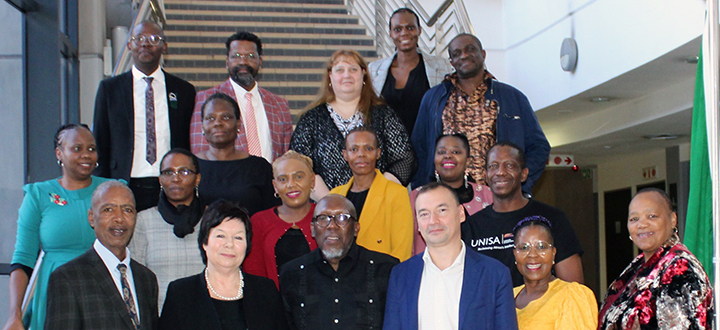College of Human Sciences
On the receiving end of coming out
 On 24 August 2018, the College of Human Sciences hosted the 2018 seminar and film screening event of the Quiltbag Community Engagement Project. This project was launched in 2014 to coincide with the Pretoria Pride Parade. It is a collaborative effort of colleagues in the Department of Communication Science, the Department of Afrikaans and Theory of Literature and the Department of Mercantile Law at Unisa.
On 24 August 2018, the College of Human Sciences hosted the 2018 seminar and film screening event of the Quiltbag Community Engagement Project. This project was launched in 2014 to coincide with the Pretoria Pride Parade. It is a collaborative effort of colleagues in the Department of Communication Science, the Department of Afrikaans and Theory of Literature and the Department of Mercantile Law at Unisa.
Melusi Mntungwa described the Quiltbag Project as an advocacy community engagement project with the aim of raising awareness and educating the wider community on quiltbag human rights and abuses. He stated that the project aims to ultimately make people, both members and non-members of the wider queer community, aware of the many different gender and sexual minorities and of their challenges and their achievements. He said the project aims to advocate for the human rights of the quiltbag community, to bust myths and stereotypes, to fight ignorance and to create a sound platform for debate, conversation and reconciliation; to challenge the representation of quiltbag members in film, and other media texts, and to educate about issues concerning the quiltbag community especially within the cinematic scape.
Justice Fayeeza Kathree-Setiloane delivered the keynote address; her presentation spoke to theme of the event “on the receiving end of coming out” by touching on the vulnerabilities of quiltbag individuals in our societies. According to Justice Kathree-Setiloane every LGBTIQ individual has in one way or the other experienced some form of emotional or physical violence in their life time, adding that as a country we have not advanced as far as awareness and acceptance is concerned.
She described how troubling it was for her and other advocates in her circle, who were rooting for LGBTIQ rights to challenge and uncover the embedded discrimination in the common law and marriage act and demonstrating how it was violating the constitutional rights of same sex couples. Justice Kathree-Setiloane acknowledged that there has been a bit of progress done in regard to tolerance in South Africa as compared to other African states. But despite that, she said that South Africa generally still remains a homophobic country, which could be caused by lack or limited education around sexual minorities and gender identities.
Justice suggested that it is rather necessary to consider urgent and more integrated systems and interventions together with improved awareness campaigns. She added that the role of youth could be very significant in challenging attitudes towards the LBGTIQ community.
*Katlego Pilane (CHS communications and marketing)
Publish date: 2018-10-10 00:00:00.0

 Unisa's student leadership engage with Russian ambassador
Unisa's student leadership engage with Russian ambassador
 Re-igniting and re-imagining Pan Africanism, Afrocentricity and Afrofuturism in the 21st century
Re-igniting and re-imagining Pan Africanism, Afrocentricity and Afrofuturism in the 21st century
 Unisa and Russian State University for the Humanities explore collaborative opportunities
Unisa and Russian State University for the Humanities explore collaborative opportunities
 Young Unisa science stars join elite Lindau Nobel Laureate group
Young Unisa science stars join elite Lindau Nobel Laureate group
 Education MEC addresses Unisa autism seminar
Education MEC addresses Unisa autism seminar